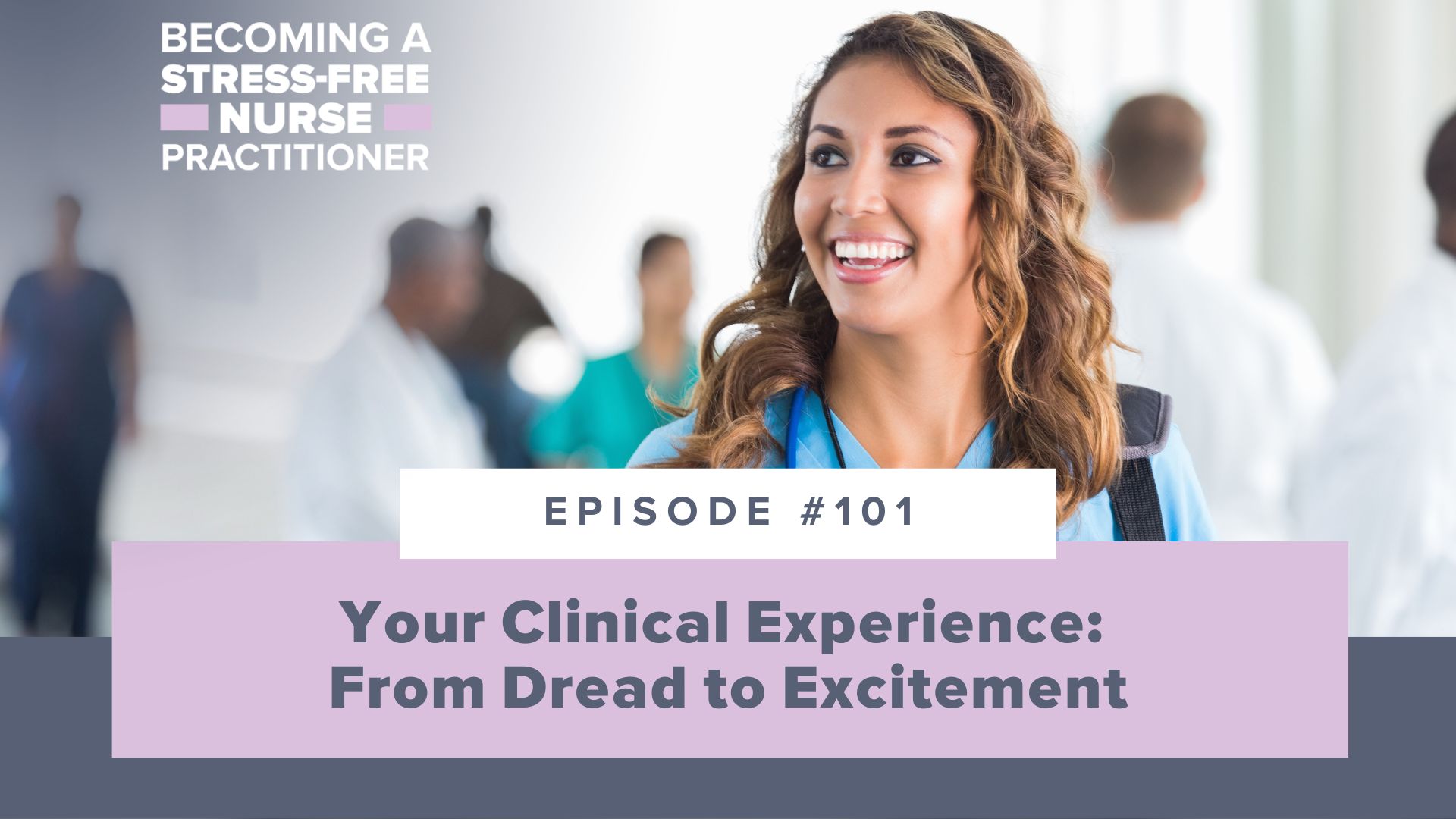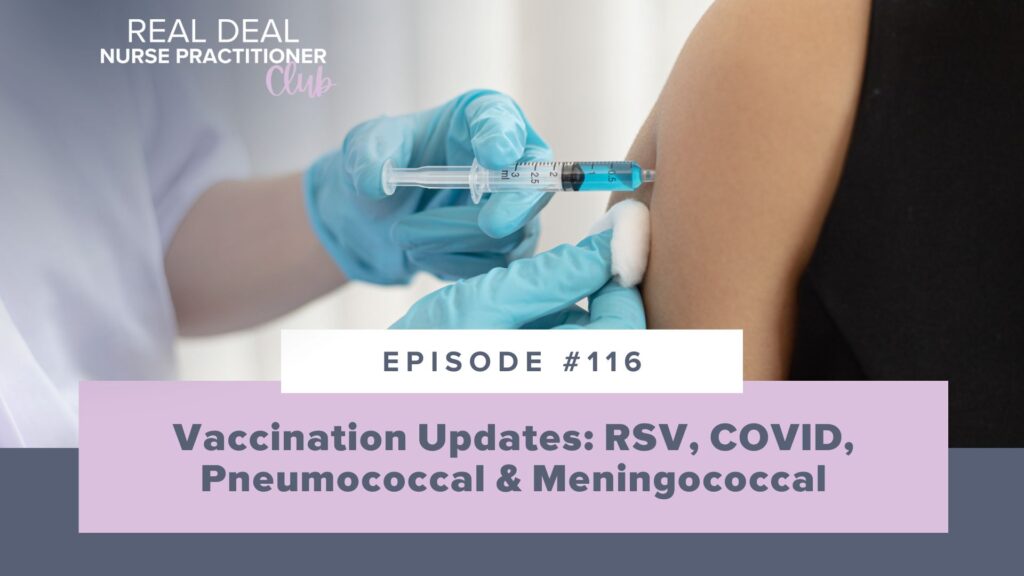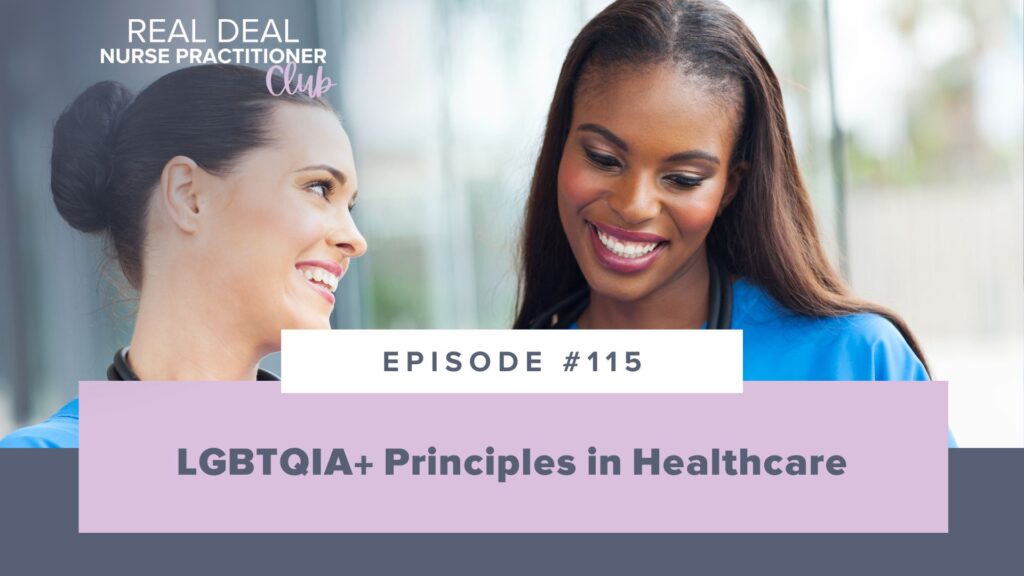Ep #101: Your Clinical Experience: From Dread to Excitement
- by
- Nov 29, 2023
- Podcasts

The clinical experience can feel very stressful, overwhelming, and intimidating. Whether you’re preparing for your first-ever clinical rotation as a Nurse Practitioner student or you’re about to complete the last rotation of your program, this episode is full of gems that will help you navigate it with more ease.
If you’re ready to look forward to going to clinical instead of dreading it, you’re in the right place. Anna and I are here today to share some of our own personal experiences of navigating clinical rotations and to show you how to take control of your clinical experience so it sets you up for future career opportunities.
Tune in this week to learn the importance of fostering a positive relationship with your preceptor and our top tips for making a great impression. You’ll hear how to negotiate your clinical experience, how to request feedback on your performance, and ways you can use the student-preceptor relationship for career networking.
If you’re looking for support, no matter what phase of your nurse practitioner journey you’re currently in, I have communities available for both students and new nurse practitioners. In these communities, we work to uplift one another and grow this profession together every day, so click here to check them out!
What You Will Discover:
- Important considerations to keep in mind about your clinical experience.
- How to first approach your preceptor.
- Why it’s important to create a positive relationship with your preceptor and how to do so.
- How to request feedback on your performance.
- Our top tips for using the student-preceptor relationship for career networking.
Featured on the Show:
- If you’re looking for extra support, I have communities available for both students and new nurse practitioners. Click here if you’re a student, and click here if you’re a new NP!
- Follow me on: Facebook | Instagram | YouTube | TikTok
- Ep #1: Don’t Give Up: The Journey to Becoming a Stress-Free Nurse Practitioner
- Ep #37: Time Management Hacks with Diana Page
- Ep #77: Holiday Season Time-Saving Hacks for New Nurse Practitioners [NEW NP]
Full Episode Transcript:

Welcome to Becoming a Stress-Free Nurse Practitioner, a show for new NPs and students that want to pass their board exam the first time and make that transition from RN to NP as seamless as possible. I’m your host Sarah Michelle. Now, let’s dive into today’s episode.
Sarah: Hey everyone, the topic that we are going to be discussing today is how to take control of your clinical experience. This is a huge one and it is going to be helpful whether you’re preparing for your first clinical rotation as a nurse practitioner student, or even if you’re completing your last rotation of your NP program. And I have Anna joining me today to share her own experiences as well. And so let’s just jump right in.
Anna: Yeah, we have a lot to talk about today, like how to first approach your preceptor, how to create a positive relationship with them, how to request feedback on your performance. I know that is something I was so nervous about as a student. And very important here, how to use that student/preceptor relationship for career networking.
I know, we’ve been there, clinical experiences can be so stressful. But hopefully we can make that feel a little less intimidating today.
Sarah: Yeah, and let’s start off by briefly explaining why having a positive relationship with your preceptor is important. A positive relationship will lead to a positive clinical experience, which will lead to your learning and your engagement in that particular clinical rotation.
Anna: Yeah, absolutely. And when you look forward to going to clinical, instead of dreading it, you are going to learn so much more. And as we’ll talk about coming up, the advantages of a good relationship go beyond just getting a good grade in your clinical course.
Sarah: Yeah, and some ways that you can prepare yourself for that is to come to the clinical as a true professional. I want you to treat your clinical rotation like a job interview every shift that you go.
You may have assignments from your program that need to be completed, which is one part of a job, but you also need to present yourself in a way that is professional. That demonstrates respect for your preceptor’s time and expertise to teach you, but you also never know what opportunity may present itself to you based on a positive relationship with your preceptor.
Anna, what else can you think of?
Anna: Something else that comes to mind is just come to clinical ready to learn. So be excited to be there. You are learning how to be an NP, and nothing is better than that. You want to show engagement in the clinical experience. And you want to show that you value what your preceptor has to teach you.
So, for example, offer to help review labs with them or assist with non urgent telephone follow-ups. Maybe you could offer to write the encounter notes, which all of this is really excellent practice for you. And also, make sure you are engaging and actively participating in the decision making process with your preceptor.
Sarah: Yes, I absolutely love hearing what students come up with, even if it’s not something that I would have chosen. I’m always learning things from my students and that shared decision making with my students helps me to identify areas of improvement for them, too.
Anna: Yeah, absolutely. But I think we should take a step back for a minute and I want to go over how to first approach your preceptor. Maybe your program has assigned someone to you or perhaps your preceptor is someone you know through work, or maybe someone that you didn’t know before you approached them to precept you.
Whichever scenario fits, and regardless of if you knew your preceptor before or not, there are definitely some things you want to keep in mind before getting started in your clinical hours. So Sarah, what’s one tip you have for students here?
Sarah: Well, similar to what we’ve said before, definitely show up ready to work. Introduce yourself to your preceptor with confidence and dress for the part. Some offices do scrubs and a lab coat, other offices are more business casual, but make sure you fit the dress code and look professional, not like you just rolled out of bed. And I always reached out to my preceptor or the office manager before my first day to confirm what that dress code was going to be.
Anna: Yeah, I did the same thing. And along with that confidence and professionalism, you need to be able to discuss your current skills. So you need to let your preceptor know what your experience is, both as an RN and as an NP student, because this will allow them to better gauge what level of instruction you need, right?
If this is your very first clinical rotation, you’ll just need more one-on-one supervision as compared to an NP student about to graduate, and that is totally normal and expected.
Sarah: Yeah, exactly. And in combination with your level of experience, your preceptor should also know your learning objectives for that clinical rotation. Those are going to be found in your syllabus, but also you should make some of your own.
Your program will of course have its own objectives regarding what your clinical experience should look like but, for example, maybe the clinical rotation you are in is focusing on acute conditions in primary care. You can mention to your preceptor that you’d really like to have some experience with simple office procedures. I know that was a really huge thing for me to overcome as a student; stitches, suturing, all of those sorts of things.
Anna: Yeah, I absolutely love that. And I know I personally had some troubles finding pediatric preceptors. And so with one of mine, I was like any pediatric patient that comes into this office, I want to see because I need the hours and I want the experience.
And yes, I was that student, I did bring a full course syllabus to my first preceptor. And I remember being so intimidated during my clinical rotations. My preceptors were wonderful, but it can be really intimidating to approach them and ask for things. But remember, you need to be able to negotiate your clinical experience.
Sarah: And using that idea of negotiating your clinical experience and things you want to learn, you also want to foster a relationship with your preceptor in that you are comfortable asking for feedback. You don’t want to think that you’re doing a great job and then get a poor evaluation from your preceptor that you did not anticipate.
Anna: Yeah, that would be awful. But an excellent point is that you should be seeking feedback throughout the clinical experience. Do not wait until the end of the semester to ask what you could be improving on.
So, Sarah, how do you recommend a student approach that feedback?
Sarah: I really think the best way is to be direct with it. So ask questions. You know, is there anything you think I can improve upon? Do you think I’m asking the right history questions? Or even things like, can you help me with my abdominal assessment?
Don’t be afraid to ask the questions that are going to help you improve and be a better nurse practitioner. And plus, that’s going to show initiative to your preceptor and that you’re really eager and you’re there to learn.
Anna: Yes, I think every time I reached out and asked for feedback or asked for help, it made my relationship with my preceptors better and almost impressed them more than pretending I knew everything.
Now, let’s say we have a student and they’re really trying to foster a positive relationship with their preceptor but it’s just not happening, because sometimes that happens. What do you recommend for the student then?
Sarah: That’s such a tough spot to be in. And that definitely happened to me and my first clinical. So just know that it does happen from time to time that the preceptor that you are paired with just won’t be a good match for you. And if that’s the case, you definitely need to consult with your faculty. They may speak to your preceptor on your behalf. Or if you’re super lucky, you may be able to get a new clinical placement.
But believe me, your faculty want you to have a positive clinical experience as much as you want to have a positive clinical experience.
Anna: Yeah, I absolutely agree with that recommendation. But staying on the positive side, let’s say you had an amazing clinical experience with your preceptor or several of your preceptors. And now you are getting ready to graduate, woo-hoo, you can definitely use that to your advantage.
So one way that I can think of is that you can use a preceptor to be an employment reference or to write you a letter of recommendation for a job, right? Because they have first-hand experience with your clinical decision making and your readiness to practice for your future employer. So they would love to hear that feedback.
Sara, what’s another way that you used the student/preceptor relationship for career networking?
Sarah: I don’t know how many times I’ve heard of students getting a job because of how things went during a clinical rotation. So that’s just another reason to treat your clinical rotation like a job interview always, because it might just lead to one. Especially if you’re near the end of your program and you really enjoy the company, the office, your preceptor, don’t be afraid to ask about any positions that are open or might be coming up in the future.
And if you have a good relationship with your preceptor, you’ll have a great reference to use then too. And, Anna, is there anything else you can think of?
Anna: I think the last thing that I would add is just to make sure you keep in touch with your preceptors, especially ones you really connected with. They can continue to be mentors to you as you are starting out in your own clinical practice. I know I have personally messaged some of my preceptors that were in specialty offices. For example, when I had a question about a complex asthma case, I followed up with my preceptor who worked in asthma allergy.
And that mentor relationship also can then lead to other possibilities. Not just jobs, but maybe even traveling to conferences together or other types of professional collaborations.
Sarah: Yeah, you really just never know what kind of opportunities are going to show themselves. So try to always foster a good relationship with your preceptor if possible.
And so I hope you took away some helpful tips today. We talked about ways to approach your preceptor in the beginning of a clinical rotation. How to really promote that positive relationship. And how to use that to your advantage after you graduate too.
Anna: Yeah, there were a lot of good tips. And remember, like we said, you should be negotiating your clinical experience, you should be seeking feedback and ways to improve. It does show initiative and makes a good impression, but it is also going to make you a better nurse practitioner.
Sarah: Absolutely. And thanks, everyone, for tuning in again this week. If you would like to have more information for us on a more frequent basis, we also have a YouTube channel and Instagram. So follow along with us and we’ll be talking to you again on the podcast here soon.
As an extra bonus, friends, if you’re looking for support no matter what phase of your nurse practitioner journey you’re currently in, I have communities available for both students and new nurse practitioners. In these communities, we work to uplift one another and grow this profession together every single day. Links to join will be included for you in the show notes.
Thanks for listening to Becoming a Stress-Free Nurse Practitioner. If you want more information about the different types of support we offer to students and new NPs, visit npreviews.com. See you next week.
Enjoy the Show?
- Don’t miss an episode: follow the podcast on Spotify, Apple Podcasts, Google Podcasts, or RSS.
Search the Blog
Join our Facebook Group!
Get FREE support and encouragement from thousands of FNP/AGPCNP students and our NP Support team.
Learn More3 Study Hacks to Conquer Your NP Exam!
Download these tips that have helped thousands of students pass their NP board exams.
Download NowInstitutional Partnerships
Are you a faculty member and would like to bring Sarah Michelle’s resources to your school? Email us at nursinggroups@blueprintprep.com for special institutional pricing or click on the link below to learn more.
Learn MoreGroup Discounts
Are you a student and have 10 or more classmates interested in purchasing Sarah Michelle’s courses? Email us at nursinggroups@blueprintprep.com for special pricing.



